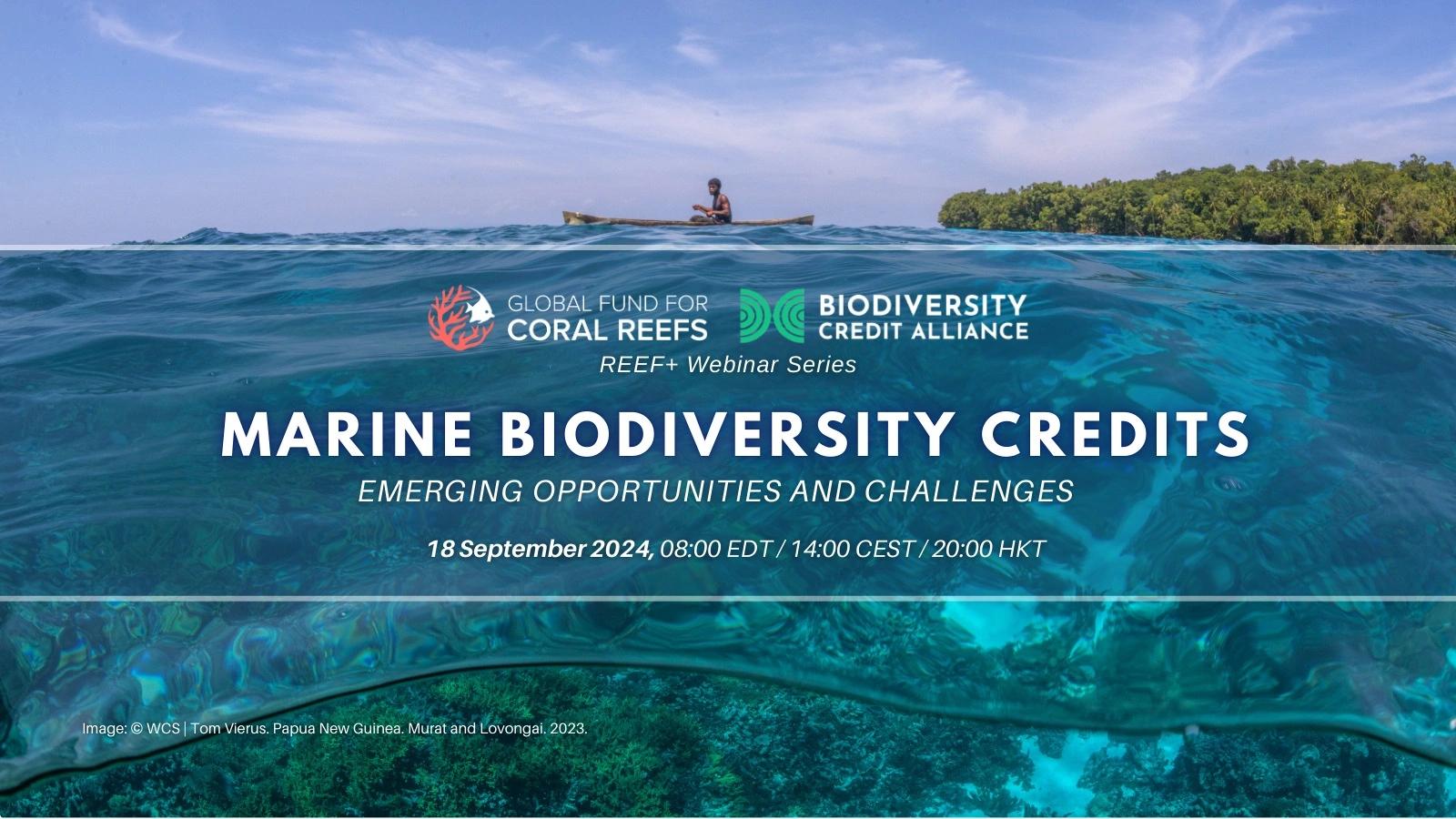Marine Biodiversity Credits Webinar

This joint webinar, hosted by the Global Fund for Coral Reefs (GFCR) and the Biodiversity Credit Alliance (BCA) on 18 September, focused on marine biodiversity credits as a financial tool to enhance marine conservation and restoration, particularly for coral reefs.
Watch and download resources from the session:
Webinar recording:
Summary of Key Points from the Webinar
Introduction
Andrew Rylance, UNDP’s Global Technical Specialist for Coral Ecosystem and Finance, introduced the webinar and highlighted upcoming GFCR knowledge-sharing events, including two collaborative training sessions on blended finance via the REEF+ Community of Practice.
Manesh Lacoul, Global Coordinator of the Biodiversity Credit Alliance (BCA), provided insights on the organization’s role in biodiversity investments:
- BCA is a UN-facilitated international voluntary alliance supporting the Kunming-Montreal Global Biodiversity Framework: https://www.cbd.int/gbf
- BCA focuses on private sector biodiversity investments through biodiversity credits, with a strong emphasis on social safeguards.
- There is a critical need for methodologies to quantify marine biodiversity gains effectively.
- Marine biodiversity credits can increase investment and protection for marine environments
Key Insights on Marine Biodiversity Credits
David Meyers, Executive Director of the Conservation Finance Alliance, highlighted essential aspects of marine biodiversity credits before moderating the panel discussions:
- Marine biodiversity credits are certificates of positive ecological outcomes, requiring strong governance and clear claims.
- Over 40 proposed methodologies vary in their approach to measuring biodiversity gains.
- Marine environments face unique challenges in attributing biodiversity changes to specific activities due to shared resources and complex responsibilities.
- Climate change impacts make it difficult to measure conservation effectiveness over time.
- Tailored methodologies are needed to monitor biodiversity across different marine habitats.
Panelist Key Takeaways
Kristina Koenig, Nature Markets Lead, Great Barrier Reef Foundation (GBRF)
- Biodiversity credits could help scale coral reef restoration, integrating local community priorities.
- Scientific research on coral-fish relationships is crucial for reliable crediting methodologies.
- GBRF, with support from L’Oréal Fund for Nature Regeneration and the Australian government, is exploring biodiversity credits for coral restoration.
Virly Yuriken, Chairperson, Misool Foundation
- Misool Foundation has successfully restored marine ecosystems and built trust within local communities.
- Effective community-led conservation in Raja Ampat, Indonesia has resulted in a 250% increase in fish biomass in a decade.
- Biodiversity credits could further benefit marine biodiversity and local communities.
Tim Coles, CEO, rePlanet
- rePlanet utilizes biodiversity verification standards like Biodiversity Futures Initiative, Verra, and Plan Vivo to quantify biodiversity gains.
- Biodiversity credits act as bio-access certificates linking investments to measurable ecological outcomes.
- Blockchain technology is used to issue bio-access certificates, which convert to biodiversity credits only after verified ecological gains.
- 80% of biodiversity gains can be claimed as credits, with 20% set aside as a buffer (similar to carbon credits).
Next Steps
Join the BCA Marine Biodiversity Credits interest group: https://docs.google.com/forms/d/e/1FAIpQLSedrJ5SCBx4cmVEd8vo14MiDtyM4D9VoOl35ZciXO_2DHQFBg/viewform